Sprayed by a skunk? Step away from the tomato juice
We clear up the myths and outline what to do if you get sprayed by a skunk
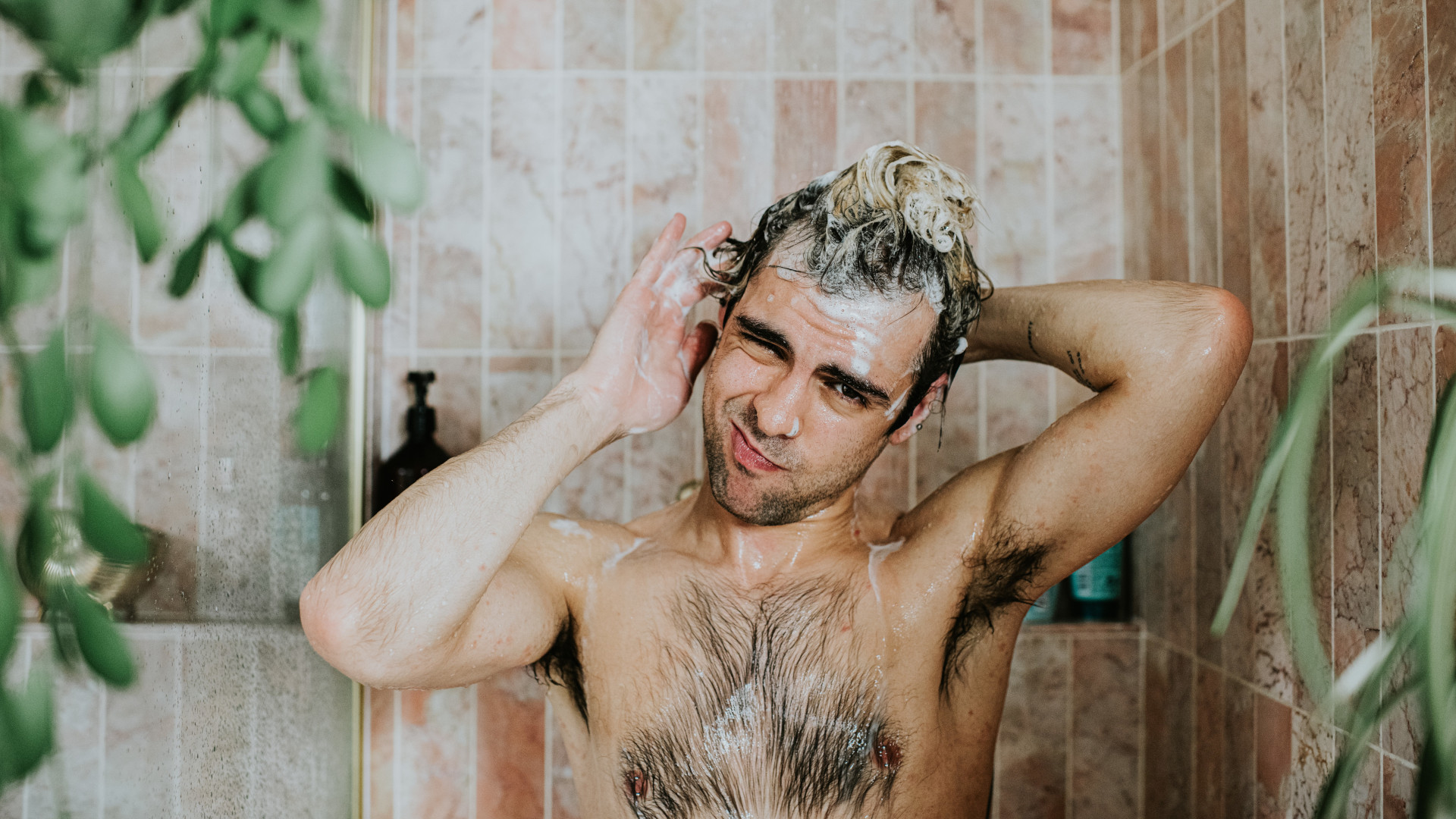
Knowing what to do if I got sprayed by a skunk was not in my life skills toolkit growing up. After all, I was raised in Scotland where skunks are Disney characters. But then at the age of 20, I was hurled into the fragrant world of skunk-spray management when I came home to my apartment in rural Missouri to find my college roommate taking a bath in tomato juice. This wasn’t some exciting fetish (though such a fetish might have been quite on-brand for this particularly exciting roommate). She had been sprayed by a skunk.
Striped skunks are found all over North America, as I’d come to learn, and being on the receiving end of their noxious defense system is somewhat of a rite of passage for many Americans who spend any amount of time outdoors at night. When a skunk feels threatened or trapped, it will turn away from you, lift its bushy tail, and deploy a horrific odor bomb in your direction that will definitely ruin your day. This foul-smelling, oily liquid can reach distances of up to 10 feet and though it won’t do you much harm, it will linger on your skin, hair and clothes for many days and your friends and family will not want to hang out with you until you get it out of control. There are a few old wives tales regarding what to do if you get skunked, so in this article we clear up the myths and outline what to do if you get sprayed by a skunk.
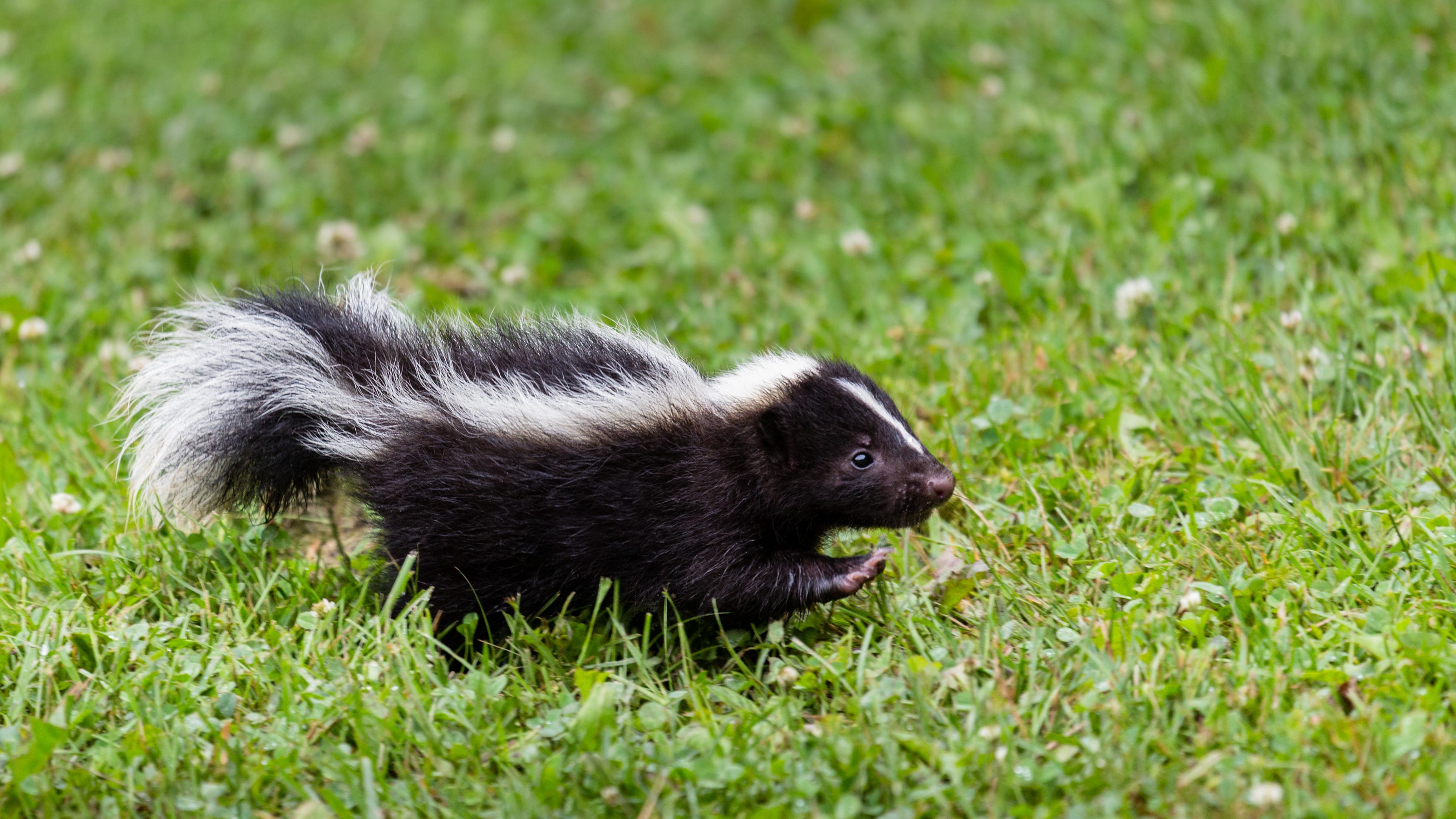
What are the chances of getting sprayed by a skunk?
Though lots of Americans will get sprayed by a skunk at some point in their lives, it’s not inevitable that a skunk will spray you just because you cross paths. First of all, they’re primarily nocturnal creatures so you’re not likely to get sprayed on a hiking trail in the middle of the day. They also will gladly run away from you if they’re able to, as it takes some days for their glands to refill after spraying, meaning they’re more vulnerable in the meantime. They will further exhibit some warning signs before spraying, such as stamping their paws and snarling, while spotted skunks do a handstand to ward off any predators. Now that’s something I’d like to see.
In fact, though I've had a few heart-stopping moments moving around dark campsites and realizing I was about to step on a skunk, I managed to avoid any malodorous attacks over my 20 years in the US. That said, I became quite used to the smell of a skunk having recently vacated the area. In truth, my skunk experiences usually revolved around my dog or my friend’s dog coming back to camp from a late night romp in the woods looking a bit sorry for itself and being banished from the two-person tent for the night. Your pet is much more likely to trap or aggravate a skunk and end up with a faceful of acrid gland juice than you are.
It’s also good to know that skunks are sensitive to light, so wear a headlamp when you’re moving around your campsite at night, or walking your dog after dark, to help keep them at bay.
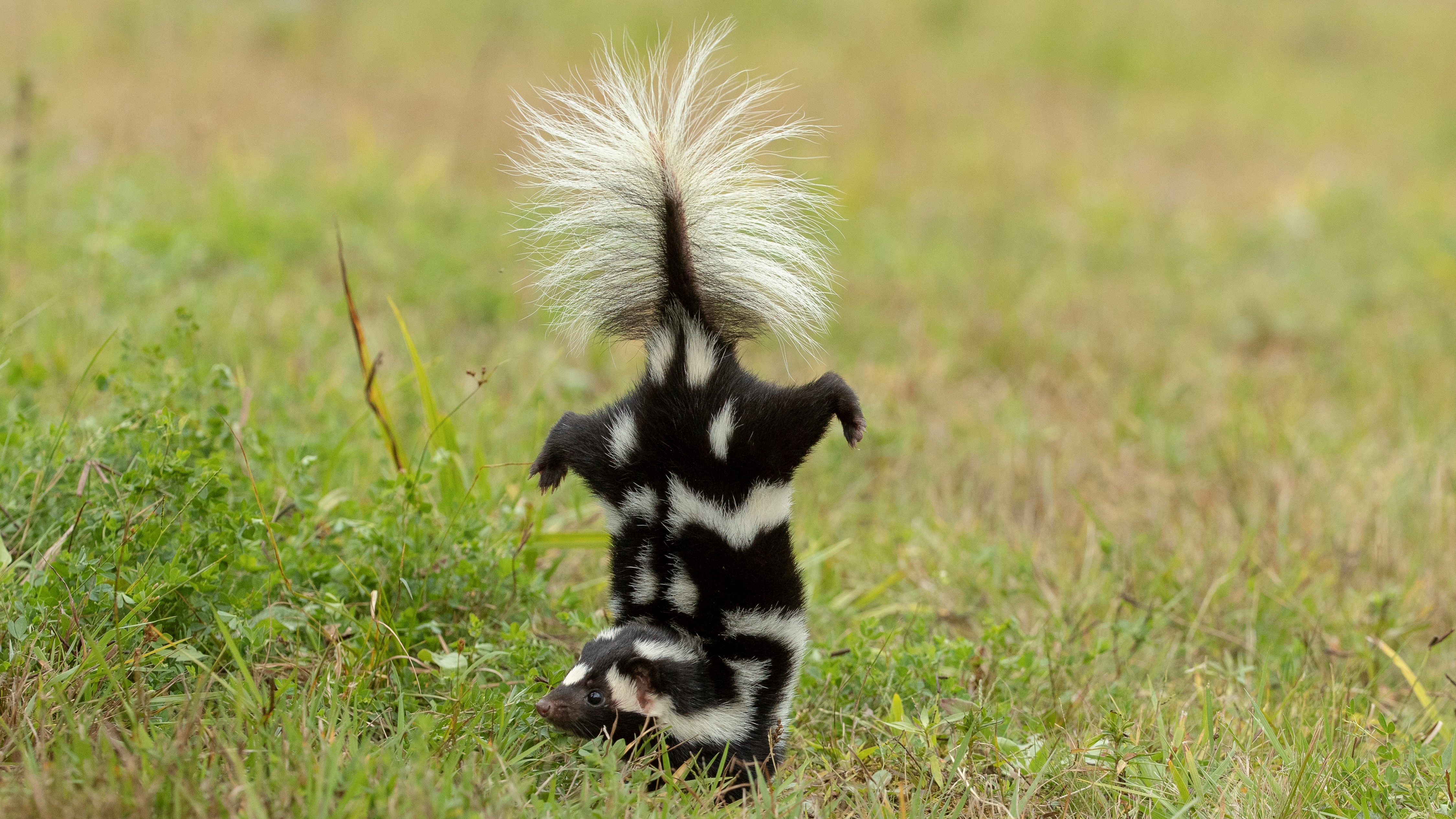
Does tomato juice really remove skunk smell?
I’ve no idea where this idea came from, but it’s about as pervasive as the smell of skunk spray on your fleece jacket. The website Poison.org calls the idea a myth, and it certainly didn’t help my roommate 20 years ago. Anyway, even if it was effective, it’s a really expensive solution. If you fill your bathtub halfway to make sure you’re well-submerged, that’s 100 liters of tomato juice! That’s around 52 of those large 64oz bottles that at a current Walmart price of $3.28 that will set you back $170. It would also take you quite a few trips to carry it all from the car back to the house, and honestly seems like a waste of good Bloody Mary mix to me. There’s a much cheaper, easier and more effective method to removing the skunk spray that doesn’t involve driving around every grocery store in town.
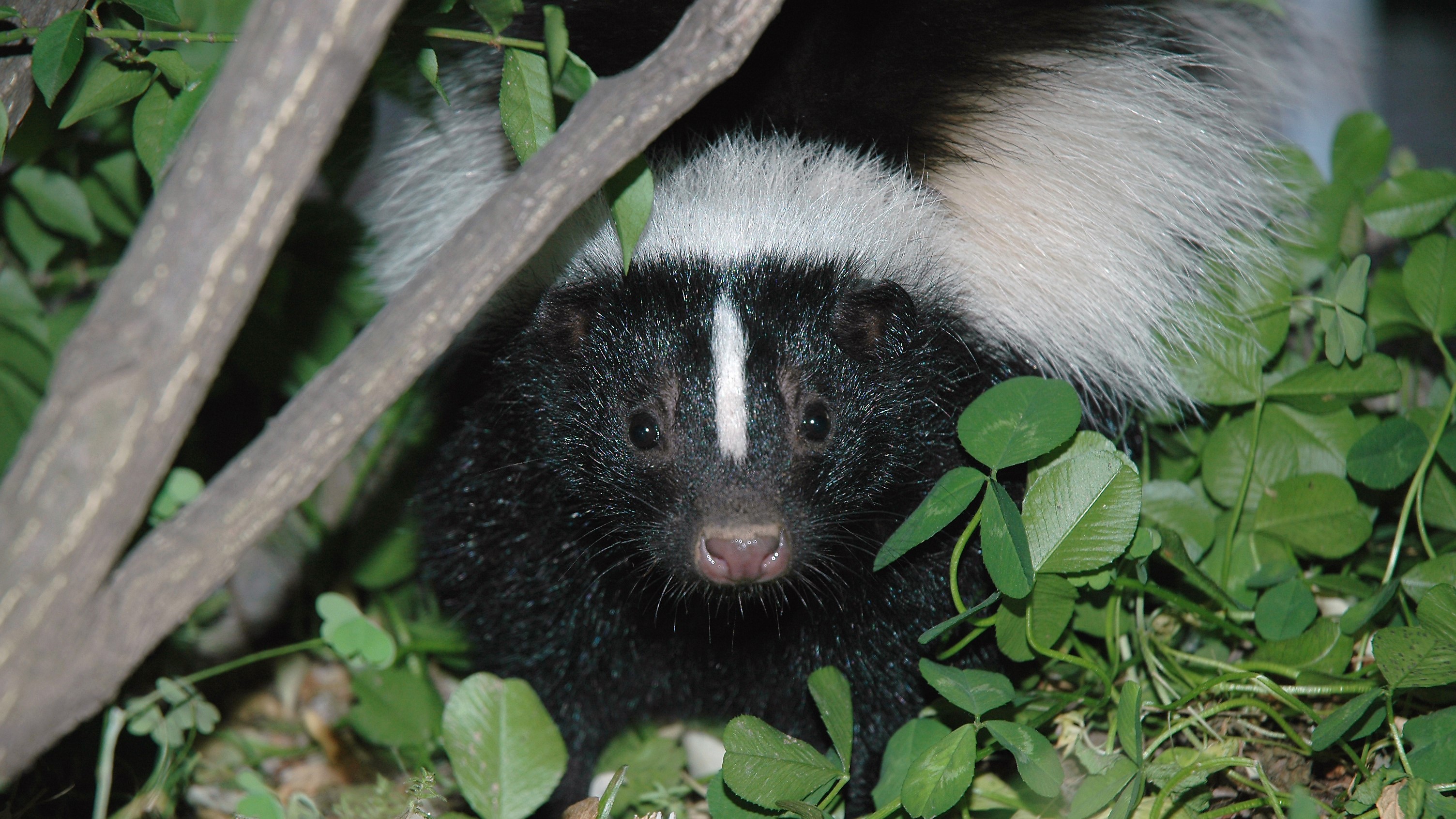
What to do if you get sprayed by a skunk
If you get skunked, it might be accompanied by some uncomfortable stinging of your skin and eyes, but this should quickly wear off. If you are experiencing severe symptoms for a prolonged period of time, seek medical advice.
Advnture Newsletter
All the latest inspiration, tips and guides to help you plan your next Advnture!
The best thing you can do if you get skunked is to wash as quickly as you can. Drop all of your clothes in the washing machine where a normal wash using regular (non-gentle) detergent should take care of the smell, followed by an air dry.
If you have spray in your eyes and mouth, stand under the shower and rinse them with plain water for 15 minutes first. For everything else, remember that a skunk’s spray is oil-based, so the best course of action is to use products that will act as a degreaser and neutralize the odor. That means you can forget about your lovely jasmine-scented all natural Lush shampoo and mango body soap – grab the dish soap and jump in the shower using it to wash your entire body and hair.
If you’re still a bit fragrant, run a lukewarm bath and four cups of baking soda to it, then soak in it for at least 15 minutes. This should take care of most of the smell. If your house is smelling a bit whiffy, open the windows to air it out, and for any objects like your camping chair that might have come home a bit skunky, you can simply wipe them down with bleach water.
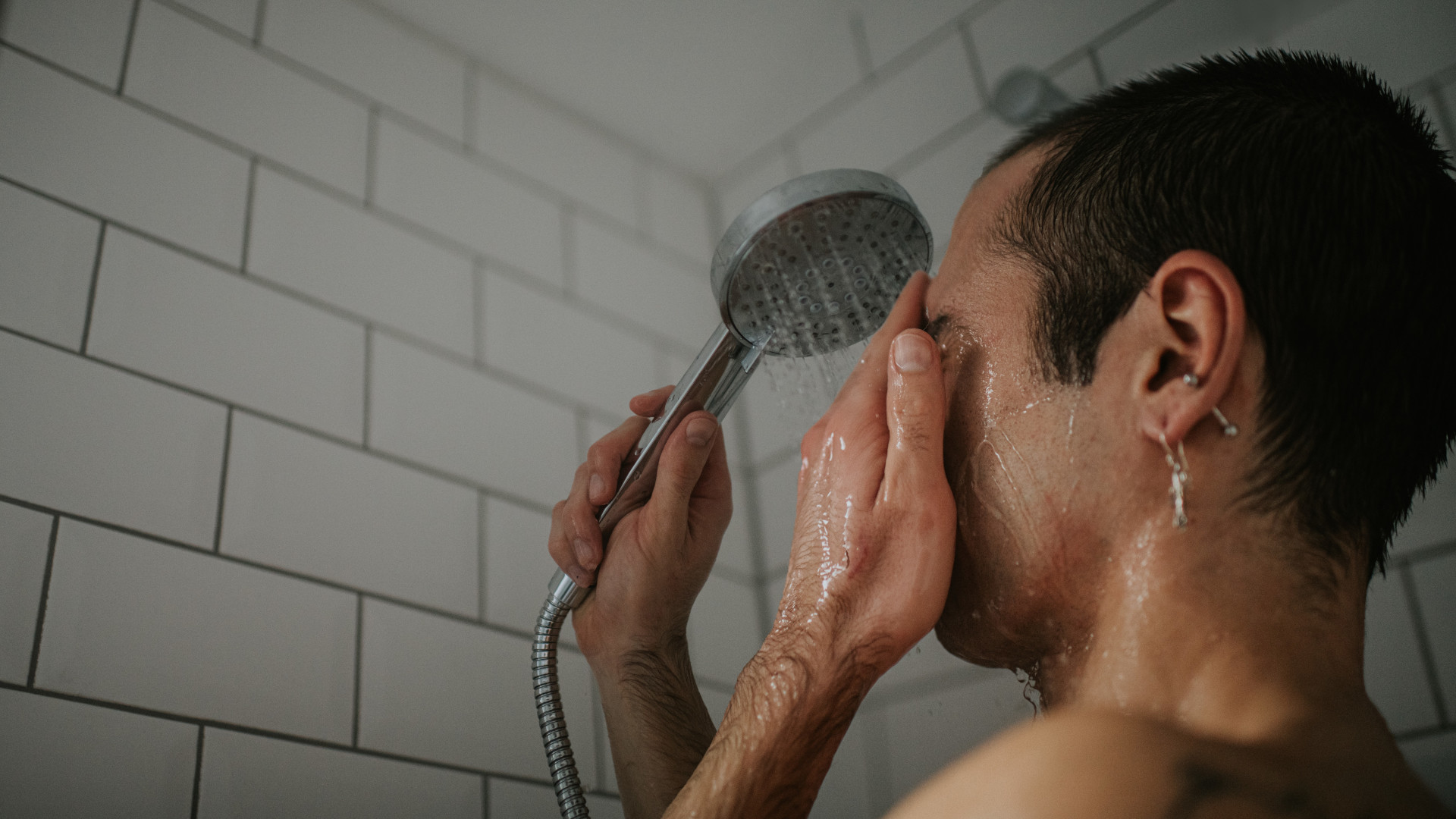
What to do if your pet gets sprayed by a skunk
If you have a pet, it may be a good idea to invest in some just-in-case specialized skunk odor remover such as Skunk Off and use as directed on the bottle. If you don’t have any remover on hand, mix up this solution and use it immediately:
- 1 quart of three percent hydrogen peroxide
- 1 teaspoon grease-cutting dish soap
- 1/4 cup baking soda
Massage it into your pet's fur, taking care to avoid their eyes, and let it sit for five minutes (no longer or it will bleach your pet's fur), then wash it out well with their regular shampoo. Don’t make batches of this solution and keep them on-hand, as it could explode.
Julia Clarke is a staff writer for Advnture.com and the author of the book Restorative Yoga for Beginners. She loves to explore mountains on foot, bike, skis and belay and then recover on the the yoga mat. Julia graduated with a degree in journalism in 2004 and spent eight years working as a radio presenter in Kansas City, Vermont, Boston and New York City before discovering the joys of the Rocky Mountains. She then detoured west to Colorado and enjoyed 11 years teaching yoga in Vail before returning to her hometown of Glasgow, Scotland in 2020 to focus on family and writing.

